- If you require advice from one of our consultants, do not hesitate to contact them by email or phone. If you do not have their details please contact the office on 01664 503200 or email [email protected]
- Scotland, Wales and Northern Ireland have all recently announced updates to their future farm policies, although none have given any clear proposals for new schemes or timings. However, we do know, in all the regions the BPS will continue in the short term whilst plans continue to be developed and consulted on. Furthermore, the Welsh Government has confirmed the BPS will continue until 2023. It has also said existing Glastir contracts coming to an end in December 2021 will be given a two-year extension until the end of 2023 with the Farming Connect Programme continuing until March 2023. The new Sustainable Farming Scheme which will replace the BPS and Glastir is expected to launch fully in 2025.
- The UK Government has, once again, delayed the implementation of border controls on agri-food imports from the EU. The postponement is blamed on the combined effects of the Covid-19 pandemic and food supply-chain issues, but it is equally a result of the Hard Brexit the Government negotiated. Many of the checks and paperwork requirements were due to be fully implemented from the 1st October, but have been delayed until the New Year or later. This effectively retains the lop-sided situation where UK exports to the EU are subject to the full range of EU checks, whilst imports from the EU are currently allowed into our market with far fewer restrictions.
- Defra is giving a ‘heads-up’ that the Countryside Stewardship Facilitation Fund will open in England for a 6th round in December. The fund supports facilitators, either individuals or organisations, to bring farmers and foresters together to produce landscape-scale Countryside Stewardship agreements. A total of £2.5m will be available under the latest round, which will close to applications on 19th January 2022. Further details expected soon.
- The sugar beet price for the 2022 crop will be £27 per adjusted tonne. This is a significant increase over the price for this year’s crop of £21.10 and £22.00 on the one-year and three-year contracts respectively. This will be a flat-rate price, with no market related bonus as has been available recently. The fact that the announcement comes so late highlights the difficulty the two parties had in reaching a price agreement. With buoyant prices for alternative crops and growing costs rising, a sizeable uplift was required to keep the area planted up. The Virus Yellows insurance scheme, will continue for 2022.
- Defra has given Rothamsted Research permission to run field trials on wheat that has been genome edited. The trials will be on CRISPR-edited wheat, which has been designed to have reduced levels of the naturally occurring amino acid, asparagine. Asparagine turns into acrylamide when bread is baked or toasted which has been found to cause cancer in rodents and is considered as ‘probably carcinogenic’ to humans and is therefore a huge problem for food manufacturers. It is expected the Government will propose allowing gene editing to be used commercially in the UK for both crops and livestock, following a consultation held this year.
- Arable markets remain firm. Over 6m tonnes of wheat have already been traded with the EU, over 50% more than this time last year, pushing prices upwards. Demand from China is fuelling buying from speculators, which in turn is increasing the volatility in the market. Furthermore, there are reports Russia may impose an export tax on its grains, making global supply tighter. Dry weather in Canada has reduced yields there, fuelling OSR prices. Barley prices are also good, just a £7 per tonne discount to wheat with milling oats about £20 per tonne above feed oats.
- The GDT average price index experienced a significant rise in September after consecutive declines since April and is now back above the $4,000 mark at $4,011. There is a general upturn in the global dairy commodities market, although still a little way off levels seen in the spring. A ‘fly in the ointment’ could be a slow-down in demand from China but reports of a shift in demand from other parts of Asia and the Middle East could compensate for this. Domestic Farmgate milk prices remain strong. The average farmgate milk price for August is 31.24ppl, 11% more than last year. But production has been falling due to poor grass growth. The AHDB expects production to run below year earlier levels until the New Year. Although the milk price is good, feed prices remain high meaning the milk to feed price ration will not encourage more production. Rising labour and energy costs are also squeezing margins.
- Farmgate beef and sheep prices remain strong. The GB all prime cattle deadweight average stands about 40ppkg above last year’s level. The GB deadweight NSL SQQ is in the region of 60ppkg above 2020 prices and over £1 per kg higher than the 5-year average. Supporting prices is tight supply. The prime cattle and cow kills were both down by 4% and 5% respectively for the period January to August compared with 2020. The UK monthly sheep meat production has been below last year and the 5-year average for every month so far this year, with July and August experiencing particularly sharp year-on-year declines. In the period January to August, the lamb kill totals 7,255,200 head, almost 900,000 less than for the same period in 2020.
- A reminder that the Future Farm Resilience Fund is now open. If you would like a one-to-one farm resilience review and report carried out by one of our consultants and access to online skills and training, including resilience planning webinars all for free get in touch with one of our consultants. Places are limited. More information can be found at https://www.eventbrite.co.uk/o/ricardo-future-farming-resilience-fund-29430290977
- FPC Future, an agritech event, takes place on 4th November at the Lincolnshire Showground. With its exhibition, conference and tours of the University of Lincoln, it seeks to provide growers with all the agritech information they need. This event should be of interest to those looking at opportunities in the fresh produce sector as well as ascertaining how new technologies could boost productivity by helping their workforce to become more efficient. Registration is free – www.fpcfuture.co.uk
This month’s Spotlight looks at the situation regarding the surge in gas prices and the knock on effect on the fertiliser market and the wider food chain. Click Here for further information.
If you would like more detail on the topics covered above as well as additional articles on UK farm business matters, why not subscribe to Andersons’ AgriBrief Bulletin? Over the course of each month, we give a concise and unbiased commentary on the key issues affecting business performance in the UK agri-food industry, and its implications for farming and food businesses. Please click on the link below for a 90-day free trial:

















